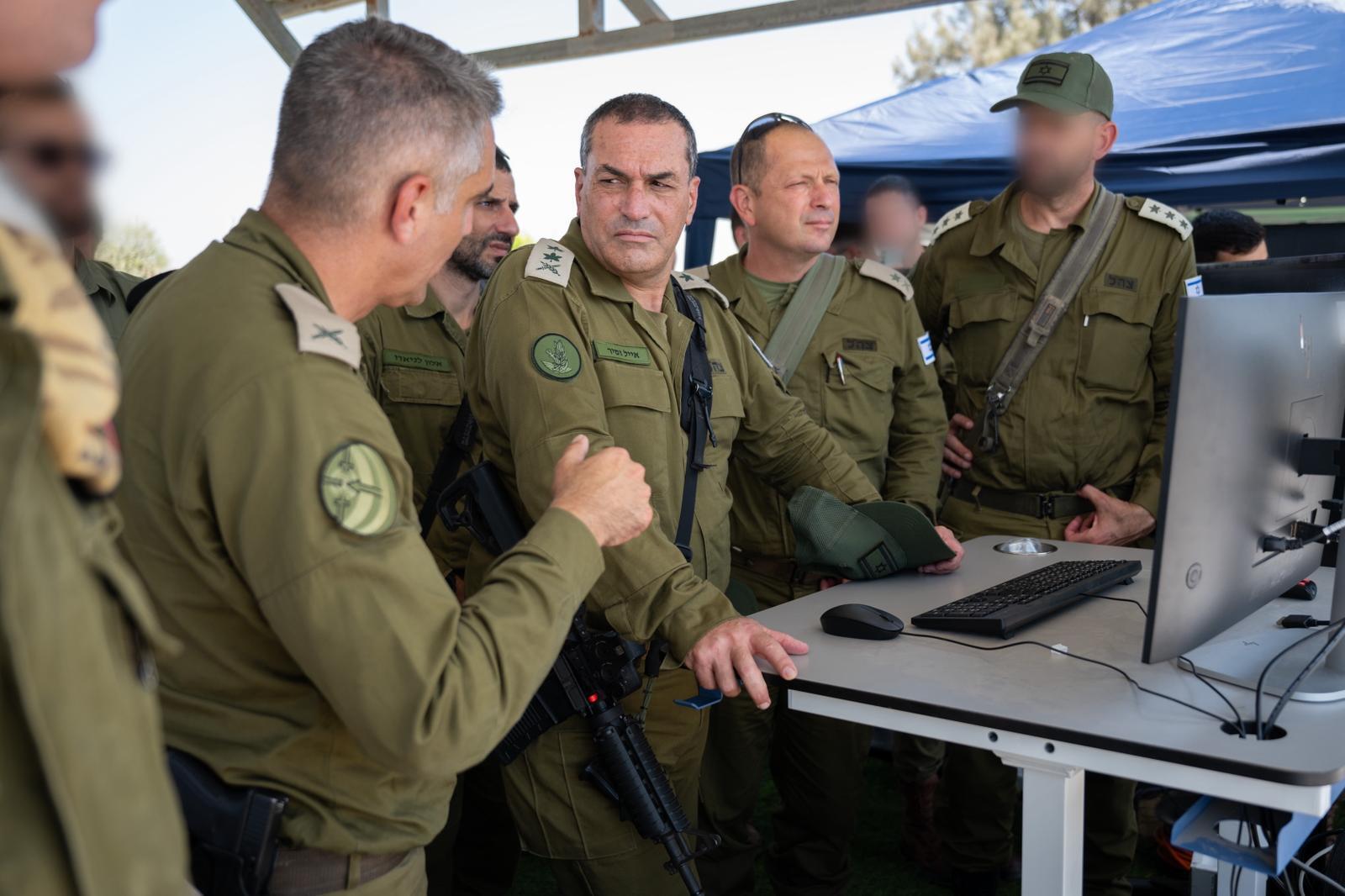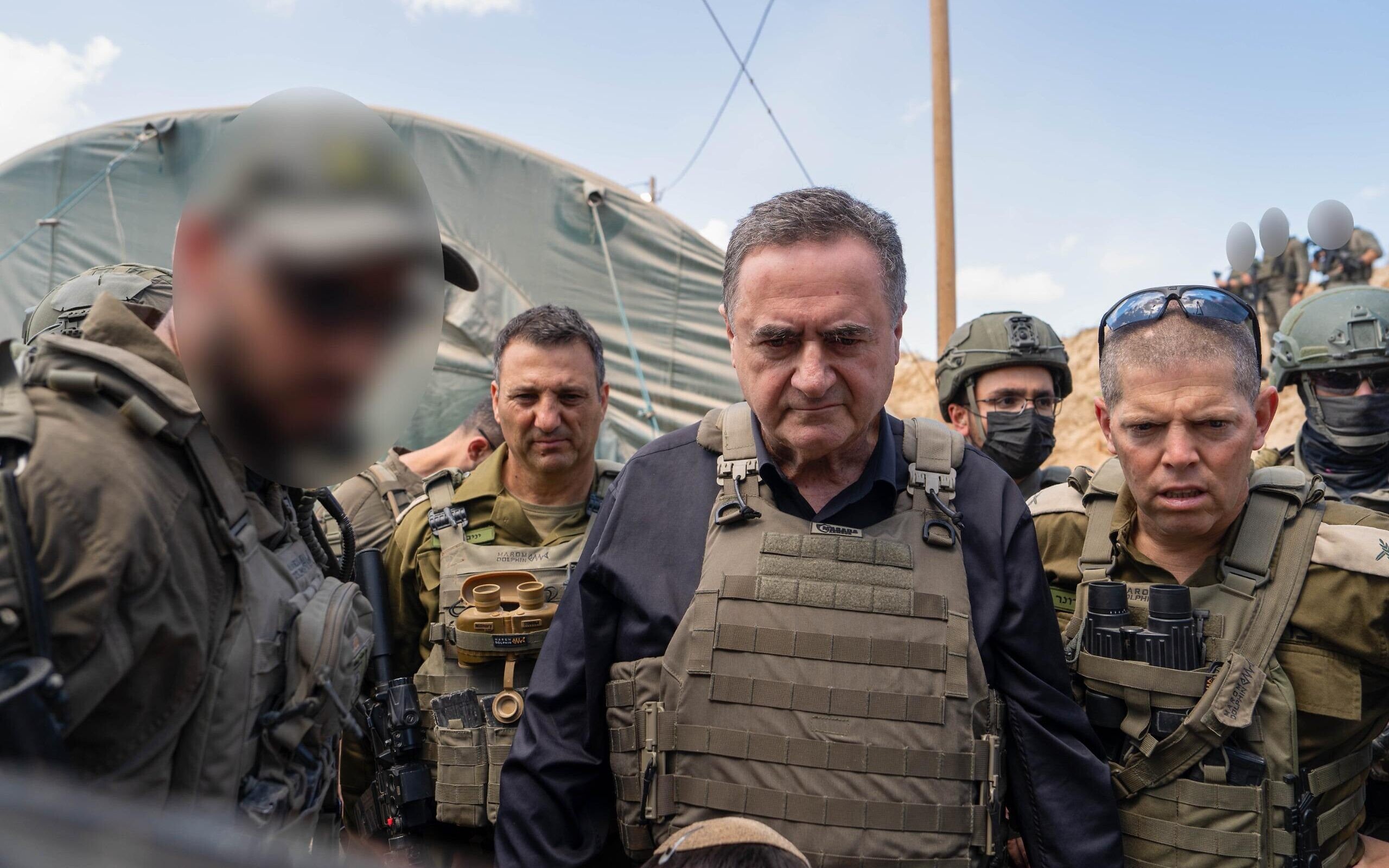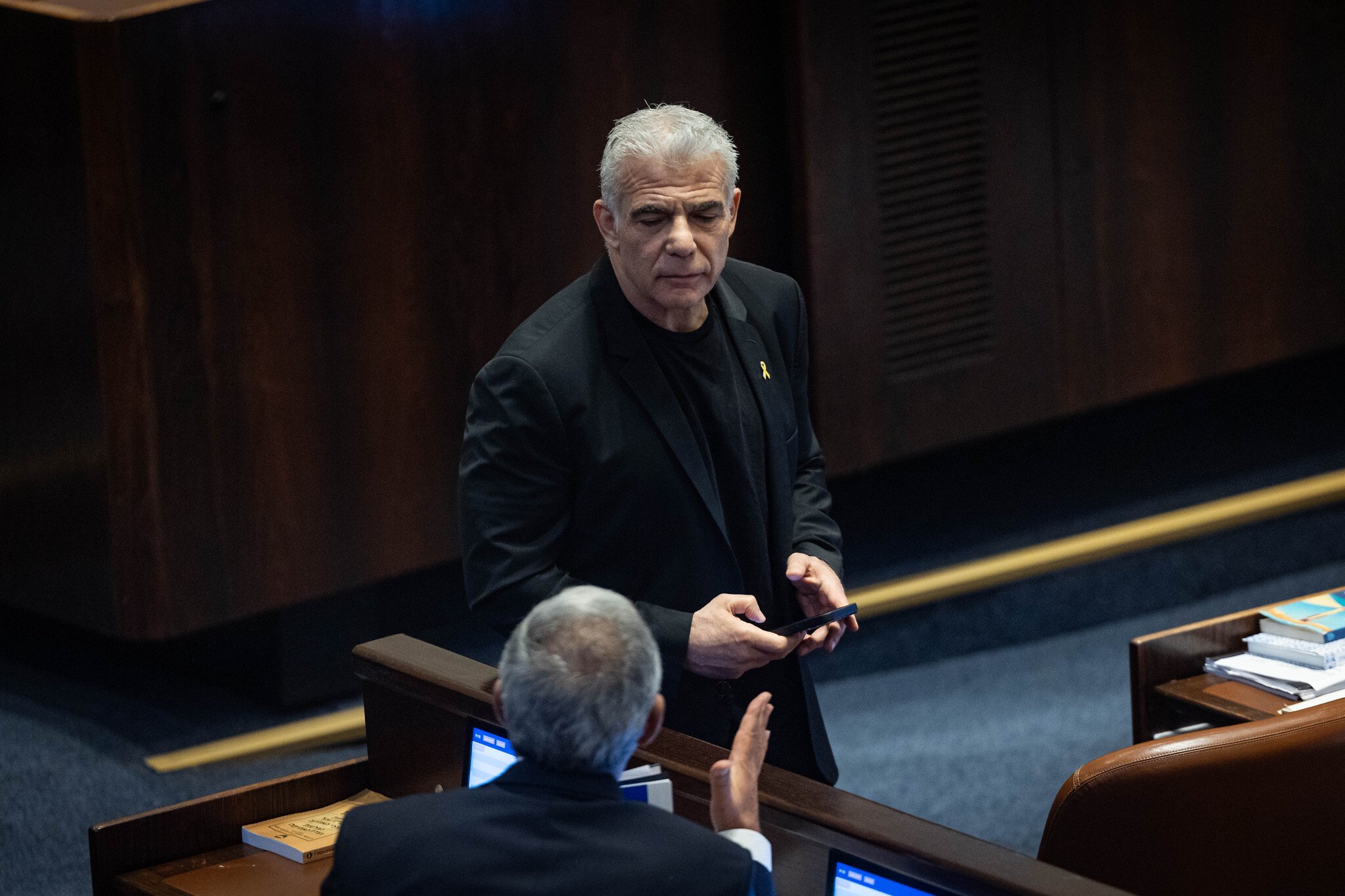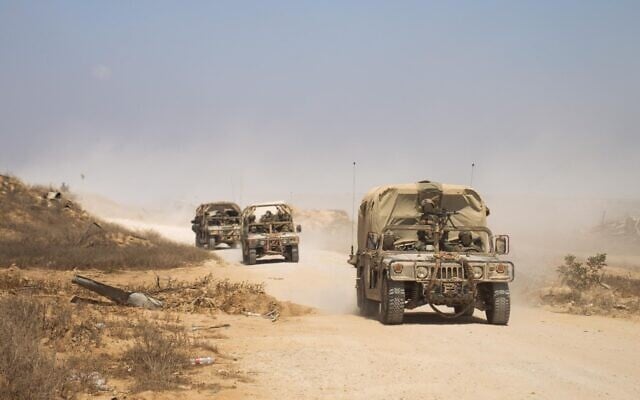Prime Minister Benjamin Netanyahu met with senior security officials on Tuesday to hammer out Gaza war plans, and reportedly came out in favor of the military taking control of the entire enclave, even if it meant that the remaining hostages could be harmed or executed by Hamas.
The meeting came amid multiple reports of rising tensions between the prime minister and IDF Chief of Staff Lt. Gen. Eyal Zamir over the prospect of Israeli forces fully occupying the enclave.
The Prime Minister’s Office said in a brief statement that Netanyahu “held a limited security discussion today that lasted about 3 hours, in which the chief of staff presented the options for continuing the campaign in Gaza.”
“The IDF is prepared to implement any decision made by the security cabinet,” the statement added, an apparent reference to reported opposition from the IDF chief to plans to reoccupy Gaza, following the apparent breakdown of hostage-ceasefire talks with Hamas in recent weeks.
The meeting aimed to finalize a plan to present to a broader cabinet session later this week, according to reports in multiple Hebrew outlets.
Others attending Tuesday’s meeting included Defense Minister Israel Katz, Strategic Affairs Minister Ron Dermer and IDF Operations Directorate head Maj. Gen. Itzik Cohen.
Far-right National Security Minister Itamar Ben Gvir and Finance Minister Bezalel Smotrich — both ardent advocates of a complete Gaza takeover by Israel — were excluded from the meeting, Israel Hayom reported.
Netanyahu reportedly told ministers this week that he will seek cabinet backing for a plan to fully occupy the Gaza Strip, despite objections from within the IDF. Zamir was said to have opposed the plan, sparking anger against the IDF chief from Netanyahu loyalists, with unnamed senior officials calling on him to resign if he didn’t like his orders.

Following the meeting, an unnamed source familiar with the talks told the Kan public broadcaster that Netanyahu is heavily leaning toward occupying the Palestinian enclave. Other Hebrew-language news outlets, including Ynet and i24 News, carried similar reports, all quoting anonymous sources.
One source told Kan that the government is aware that the military campaign to gain full control over Gaza will likely endanger the remaining hostages, of whom 20 are believed to be alive.
The report said that the IDF and the defense establishment remain opposed to the plan, in part because it puts the hostages in danger of being executed by their captors should troops approach where they are being held.
The IDF currently holds control over approximately 75 percent of the Gaza Strip, but under the new plan, the military would be expected to occupy the remaining territory as well, bringing the entire enclave under Israeli control.
The military has largely refrained from operating in certain areas where it is believed that the hostages are held. Hamas has repeatedly said it will execute them if it believes Israeli forces are closing in.
It is also unclear what such a move would mean for the Strip’s millions of civilians and humanitarian groups operating in the enclave.
Earlier Tuesday, reports of Zamir’s reluctance drew sharp condemnations from the far-right and Netanyahu loyalists, including his son.
Ben Gvir urged Zamir to publicly commit to carrying out the orders of elected officials, even if they decide on the occupation of the Strip

“The chief of staff must say clearly that he will fully carry out the orders of the political echelon, even if it’s decided to go for full conquest and a clear result,” Ben Gvir said in a post on X.
Netanyahu’s eldest son, Yair, also took to social media from his home in Miami to lambaste Zamir in a series of posts on X, and implied the IDF chief was trying to lead a military rebellion against his father.
He claimed Zamir was only appointed to his position because Defense Minister Katz insisted on the choice.
He also seemed to imply that Zamir secretly dictated a post on X by Yedioth Aharonoth military correspondent Yossi Yehoshua, in which the journalist criticized Netanyahu’s reported plan to occupy Gaza.

“If Netanyahu really is interested in making the really dramatic and divisive decision among the Israeli public — the occupation of Gaza City and the central camps — he needs to stand before the nation, clarify the expected price to the lives of the hostages and soldiers who will fall, and declare that he takes full responsibility, despite the IDF’s opposition,” Yehoshua wrote.
Yair Netanyahu replied: “If whoever dictated to you that tweet is who we think, this is a rebellion and attempted military coup fit for a banana republic in Central America during the 70s. This is completely criminal.”
And even the defense minister appeared to issue a veiled attempt to pressure Zamir into backing down.
“Once the political leadership makes the necessary decisions, the military echelon, as it has done in all fronts of war so far, will professionally implement the determined policy,” Katz said during a visit to an IDF post in the Gaza buffer zone on Tuesday. “My role as the defense minister in charge of the IDF is to ensure that this will be the case, and that is what I will do.”
Katz said he had formulated his positions “regarding the security and political steps Israel must take to ensure the achievement of the war’s objectives,” and would present them to Netanyahu and cabinet ministers at the meeting later in the day.

Speaking publicly, during a meeting with new recruits to the IDF’s Armored Corps and Combat Engineering Corps at the main military induction base in central Israel, Netanyahu reiterated the three stated aims of the war, without mentioning the prospect of conquering Gaza entirely.
He told troops that there is “still a need to complete the defeat of the enemy in Gaza, to release all our hostages and to ensure that Gaza is no longer a threat to Israel.”
Zamir, however, received support from the opposition and from Foreign Minister Gideon Sa’ar, the sole government minister to back him publicly.
“The chief of staff is required to express his professional opinion clearly and unequivocally to the political echelon. I am convinced that he will do so,” Saar wrote on X. “He is not required to clarify the subordination of the military echelon to the government’s decisions.”
Reports of Netanyahu’s dispute with Zamir prompted objections from Opposition Leader Yair Lapid, who insisted that such disagreements must remain “behind closed doors.”
“IDF soldiers should not think that a divided and conflicted leadership is leading them, that the political echelon does not respect their commander, that they are selling them out for a headline,” Lapid wrote on X.
He added that an “operational price” exists for such leaks, since they could dissuade the IDF chief from voicing his opinion if he thinks it may make it to the press.

Blue and White-National Unity chairman Benny Gantz condemned cabinet ministers’ “unrestrained attacks” against Zamir.
“In the State of Israel, the chief of staff is subordinate to the political echelon, as it has always been and will be, but he is not a puppet on a string or a rubber stamp,” Gantz posted. “Instead of threatening and whining, perhaps it’s worth internalizing: The problem lies with the political echelon, not the military one.”
The war began with the Hamas-led October 7, 2023, attack on Israel, which killed some 1,200 people and took more than 250 hostage. Since then, the Hamas-run Gaza health ministry says more than 60,000 people in the Strip have been killed or are presumed dead in the fighting, though the toll cannot be verified and does not differentiate between civilians and fighters.

Israel says it has killed some 20,000 combatants in battle as of January and another 1,600 terrorists inside Israel during the October 7 onslaught. Israel has said it seeks to minimize civilian fatalities and stresses that Hamas uses Gaza’s civilians as human shields, fighting from civilian areas including homes, hospitals, schools, and mosques.
Israel’s toll in the ground offensive against Hamas in Gaza and in military operations along the border with the Strip stands at 459. The toll includes two police officers and three Defense Ministry civilian contractors.

